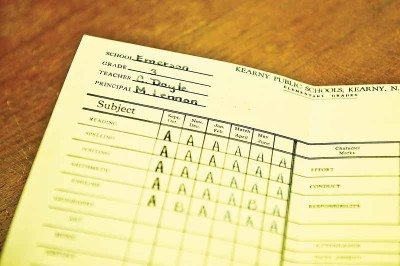 It’s hard to argue with that title, isn’t it? People really are the driving force in any business, small or large. Unfortunately, many students are not learning skills to deal with people. I wonder why that is? Perhaps it’s because not everyone agrees what these skills are, what to call them, how to teach them or maybe it’s because they’re difficult to test for in school.
It’s hard to argue with that title, isn’t it? People really are the driving force in any business, small or large. Unfortunately, many students are not learning skills to deal with people. I wonder why that is? Perhaps it’s because not everyone agrees what these skills are, what to call them, how to teach them or maybe it’s because they’re difficult to test for in school.
Today’s schools focus on STEM, STEAM, Common Core and CTE curriculum and testing to determine whether students are learning. In business, getting anything accomplished is based upon individuals learning how to use their knowledge, talents, skills and experience to effectively interact with people. And while technology is used to interact with people, screens and keyboards are not as effective as face to face communication, or even communicating on the phone.
Students need to remember that there is only one constant in any job, type of work and in every business, and that is people. They must also understand that the definition of business is: “one’s work, occupation or profession.” This means that anything they do to earn a living is some type of business, requiring specific skills to deal with people; skills Edutopia (an educational publication) calls soft skills. These are the skills businesses want graduates, applicants, interns and employees to have.
Many people consider soft skills to be common sense, and common sense can be taught; you’re not born with it. You learn soft skills by observing them being used, reading about them, being taught by someone who has them and practicing them yourself. More often, it’s a combination of these things.
 Soft skills are as important, if not more important than technology skills students use all the time. There’s no doubt that technology is here to stay. However, keyboards and screens do not convey passion, confidence, emotions, feelings or energy the way face to face conversation and body language does.
Soft skills are as important, if not more important than technology skills students use all the time. There’s no doubt that technology is here to stay. However, keyboards and screens do not convey passion, confidence, emotions, feelings or energy the way face to face conversation and body language does.
Thankfully, there are skills which are easily learned by any student, regardless of their grades, test scores, class rank, social, cultural or economic background. I call these human interaction, knowledge- applied skills because that’s what they are and do. They are the skills used in problem solving, critical thinking, decision making, teamwork and leadership. They help build self-confidence and self-esteem and they enhance what students learn in school. More importantly, as a student grows, the skills grow with them, becoming more refined over time.
A recent article in the Wall Street Journal asked large corporations why qualified applicants weren’t being hired and the answer was, ‘lack of communication skills.’ Harvard Business Review identified six reasons why people were being laid off. One of the six said “they had poor (very poor) interpersonal skills. And many of these people were described as brilliant.”
This is the time of year when students get ready to go back to school and graduates are pounding the pavement looking and competing for interviews, offers and jobs. They both need skills which prepare them to take advantage of the Power Of People in business. The sooner they learn them, the better. It’s hard to argue with that too …isn’t it?
 Bob Wolf is founder of HOPE: The Students’ Bridge To Business and the HOPE Skills Program. Visit the HOPE Skills YouTube channel for more information.
Bob Wolf is founder of HOPE: The Students’ Bridge To Business and the HOPE Skills Program. Visit the HOPE Skills YouTube channel for more information.


















